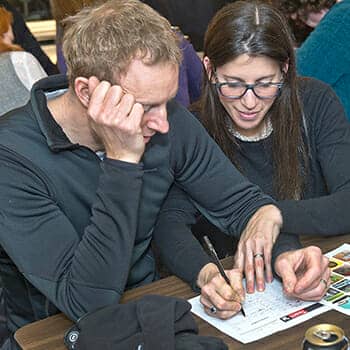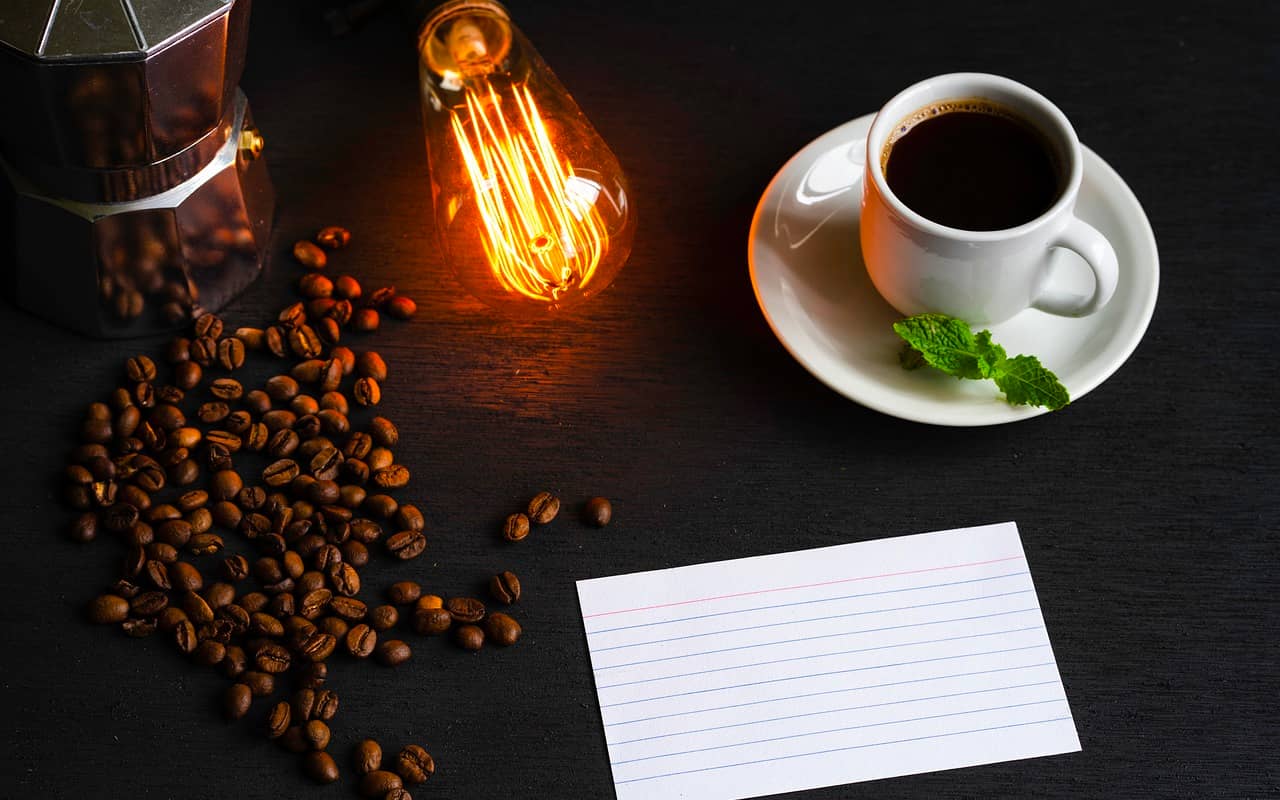Podcast: Download
Subscribe: Apple Podcasts | RSS
 Knowing how to remember trivia questions and answers can make you a lot of money.
Knowing how to remember trivia questions and answers can make you a lot of money.
But there are other reasons you might want a full arsenal of memorization tricks at your side.
In addition to making bank, being at the ready with lots of interesting tidbits can be:
- Personally fulfilling
- Professionally useful
- An alternative to physical sports for competitive people
- A great way to socialize
- A source of social capital
Plus, being fascinated with trivia does not make the information “trivial.”
Far from it.
In fact, as you’re about to discover, even if a fact you commit to memory does prove trivial (heaven forbid), you can still use that datapoint as an asset. I’ll show you how I used a random bit of trivia to produce a great outcome earlier today near the end of this post.
As a memory expert, I commit a lot of information to memory, and the exercise itself is useful. None of it is trivial to me in the end.
So if you want to learn how to get better at trivia, this page has all the details that will take you from amateur to pro. And if you wind up winning at trivia night, all the better.
Just rest assured that when you’re using the techniques on this page to give you a competitive edge, you can never lose. The benefits from the brain exercise itself are too valuable to leave you feeling anything but a trivia master.
Ready?
Let’s dive in!
The Strategy Behind Trivia Memorization
When memory athlete Jonas von Essen won a major television trivia competition in 2023, a ton of people asked me my opinion as a memory expert.
“Did he use memory techniques to win?”
Of course. But that’s not the only strategy von Essen and other successful trivia players use.
If you want to truly know how to study for trivia, it’s a combination of multiple methods. These learning techniques include:
- Keeping up with current events and world news
- Watching other trivia shows and game shows at large
- Using chunking techniques while reading
- Being good with numbers and mental calculation
- Memorizing key lists like the names and dates of presidents
- Practicing in situations that are like the trivia setting to stimulate state dependent memory
This final point is key.
See, if von Essen had one edge above all, it’s that he was well-practiced at competition. He won the World Memory Championship twice, after all.
That means the stress helped his memory more than it hindered it. He was a pro at performing well under pressure, something most of us can only do when we have some deliberate practice in similar settings under our belts.
How to Remember Trivia: 6 Memorization Tricks to Help You Become a Trivia Master
Now that you’ve got the broad overview and understand how being skilled with trivia can fulfill a variety of cognitive needs, let’s get into the granular details.
Every step of the way, knowing how to remember things is going to be key.
So let’s start with that.
One: Master Mnemonics
Broadly speaking, a mnemonic is anything that helps you remember something, including rote learning.
The problem with rote is that it takes too long. That’s why people use mnemonic devices like planet mnemonics, mnemonics for anatomy, and alphabet mnemonics for simple tasks.
More advanced strategies like the Major System and PAO System are also helpful, especially for memorizing numbers.
All of these approaches have mnemonic images and the Memory Palace technique in common. People serious about getting better at trivia will want to get deeply familiar with each of these approaches.
Two: Consume Massive Amounts of Info Like a Pro
Once you’ve got your memory skills boosted, you’ll want to get good at extracting information from a variety of sources.
One of my go-to strategies has always been a special textbook memorization technique. It’s a vast improvement to most speed reading programs because it avoids skimming and scanning practices that cause you to miss the important details.
Basically, you use this technique with physical index cards. Some people call them flash cards, but the strategy is the same. You extract the information onto cards, ideally by hand, and then use Memory Palaces to memorize each fact.
The writing step is really important. Memory expert Lynne Kelly calls handwriting “a powerful encryption tool in the science of memory.”
Sure, you can use Anki or some other spaced repetition software, but you’re quite possibly diminishing the amount you can remember when you do.
So whether you’re memorizing information from philosophical books or absorbing medical terminology, the extraction process I just described streamlines everything. It will also give you more time to hold trivia practice rounds.
Three: Chunk While You Read
You don’t always have to use the index card method, however.
For example, I was reading a book about Latin and Greek word origins earlier today. I learned that “sitos” is Greek for “sitting and eating, usually at the side of another.” It’s part of the word parasitos. We get our word for “parasite” from this origin.
To remember this, I didn’t need to do anything other than chunk it together with a quick mental image of Superman sitting beside a guy I know named Perry at a Safeway grocery store.
Superman is a pegword I use a lot for words that start with ‘s.’ And I have many others.
The point is that I’m able to “chunk” the core information quickly together and add it to a Memory Palace. In this case, the Memory Palace starts with ‘s’ as well.
Four: Learn Mental Calculation
A lot of facts involve numbers related to historical dates, how much things weigh, how old things are, distances, etc. I suggest you use the number techniques I’ve already mentioned, or try the number rhyme technique.
You may even have to perform calculations. To get really fast at that, you can:
- Learn mental calculation skills
- Master the Trachtenberg method
- Develop an understanding of Vedic Math
Not only will these skills help you solve any math-related puzzles that may come up, they also contain interesting tidbits that might come up on a trivia quiz.
Five: Practice in the Right Conditions
I once competed at a memory competition against Dave Farrow.
Fortunately, I didn’t fall flat on my face. But because I had never competed before, I had no context dependent memory developed.
As memory expert and multi-time USA Memory Champ Nelson Dellis coached us when he hosted the Magnetic Memory Method Podcast, to win you need to practice competing.
Here are a few ways you can do that in low stress environments before taking it to the big time:
- Play trivia games in noisy places where your concentration will be taxed
- Practice with friends who understand your goals and support you
- Make sure you balance the challenge-frustration curve
This final suggestion comes from The Victorious Mind.
Balancing the challenge-frustration curve means that you should watch out for when things get too easy. It can feel good for your ego that you’re doing really well, but it risks not growing your skills.
On the flip side of the coin, if you take on too many challenges, you wind up frustrating yourself. So always be willing to scale back so that you don’t wind up quitting.
As you continue on, you’ll find that that mental strength tactic helps you improve with greater consistency and avoid the temptation to pause or quit.
Six: Keep a Progress Journal
We’ve talked about the role of handwriting as a kind of encryption tool.
You can take it a step further by journaling for improvement over time. Memory athlete Johannes Mallow has used journaling a great deal as a memory athlete.
And as someone who loves facts large and small, I journal what I memorize frequently.
I’m not particularly tidy about it. I just summarize what I memorized throughout the day to get in a bit of extra practice.
Become an Invaluable Trivia Player & Person of Incredible Knowledge
One thing I love about memorizing trivia is that it makes playing trivia games with others a lot of fun.
Not just because winning is deeply fulfilling. It also provides two special opportunities:
- A chance to reflect on when and where you encountered the right information in your past
- The opportunity to learn many new things
In this way, you never lose when you play trivia. Each and every question gives you fantastic brain exercise whether you score points or not.
Plus, becoming a personal of greater knowledge is an ongoing benefit.
There’s always so much more to know.
And the great thing about learning more about Latin and Greek as I was just doing today is that I can chunk on more and more facts. That’s because once you establish one thing in memory, it’s easy to add on more.
For example, it’s not at all trivial to know about the etymology of “sitos” when I can use the same image of Superman to add on “supercilious.”
The word means “haughty and arrogant” now, but it literally comes from the words for eyebrow (super means “above” and “cilium” is eyelid). What better eyelid to use than Superman’s?
If you’d like ancient memory techniques like these working for you, please consider getting my free memory improvement course by clicking the image below and signing up:
In it, you’ll learn more about how to create a vast web of associations in your mind.
That way, you’ll win on trivia night and enjoy knowledge that stand the test of time.
Related Posts
- How To Keep A Journal, Remember More And Enjoy More Success
Use these simple techniques to keep a journal that will increase your experience of time…
- How to Remember Concepts: 5 Steps To Mastering Complex Ideas
Remembering concepts feels like the hardest thing on the planet to do. Keep these principles…
- Katie Kermode On Memory Competition and Casual, Everyday Mnemonics
Katie Kermode, a memory champion and competitor from the United Kingdom, discusses her journey with…






